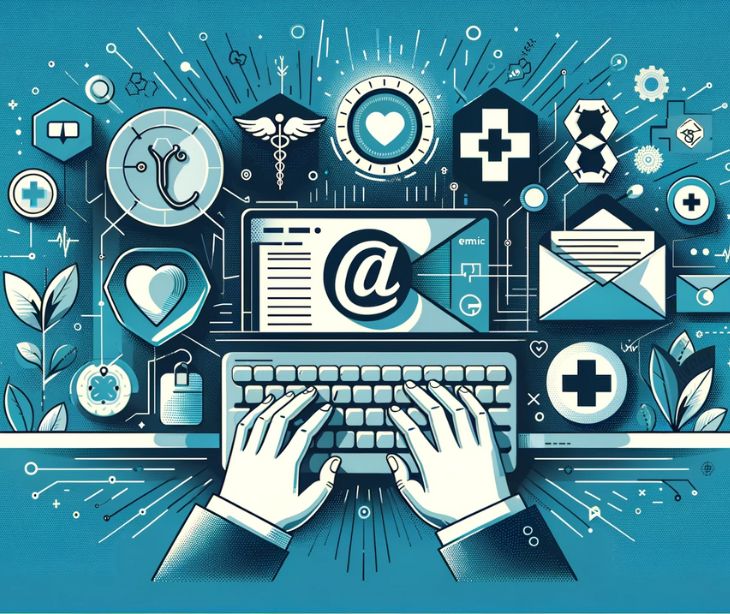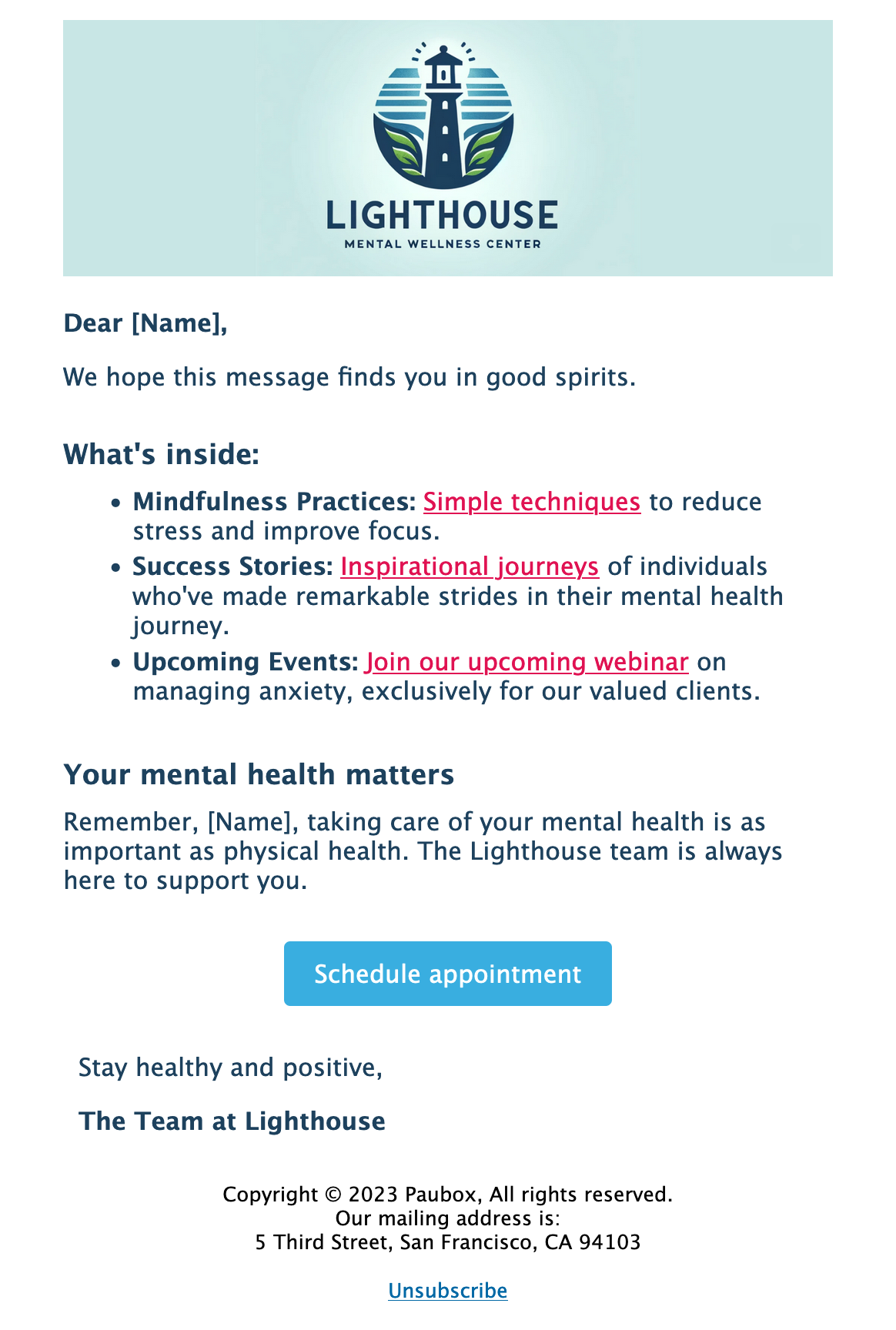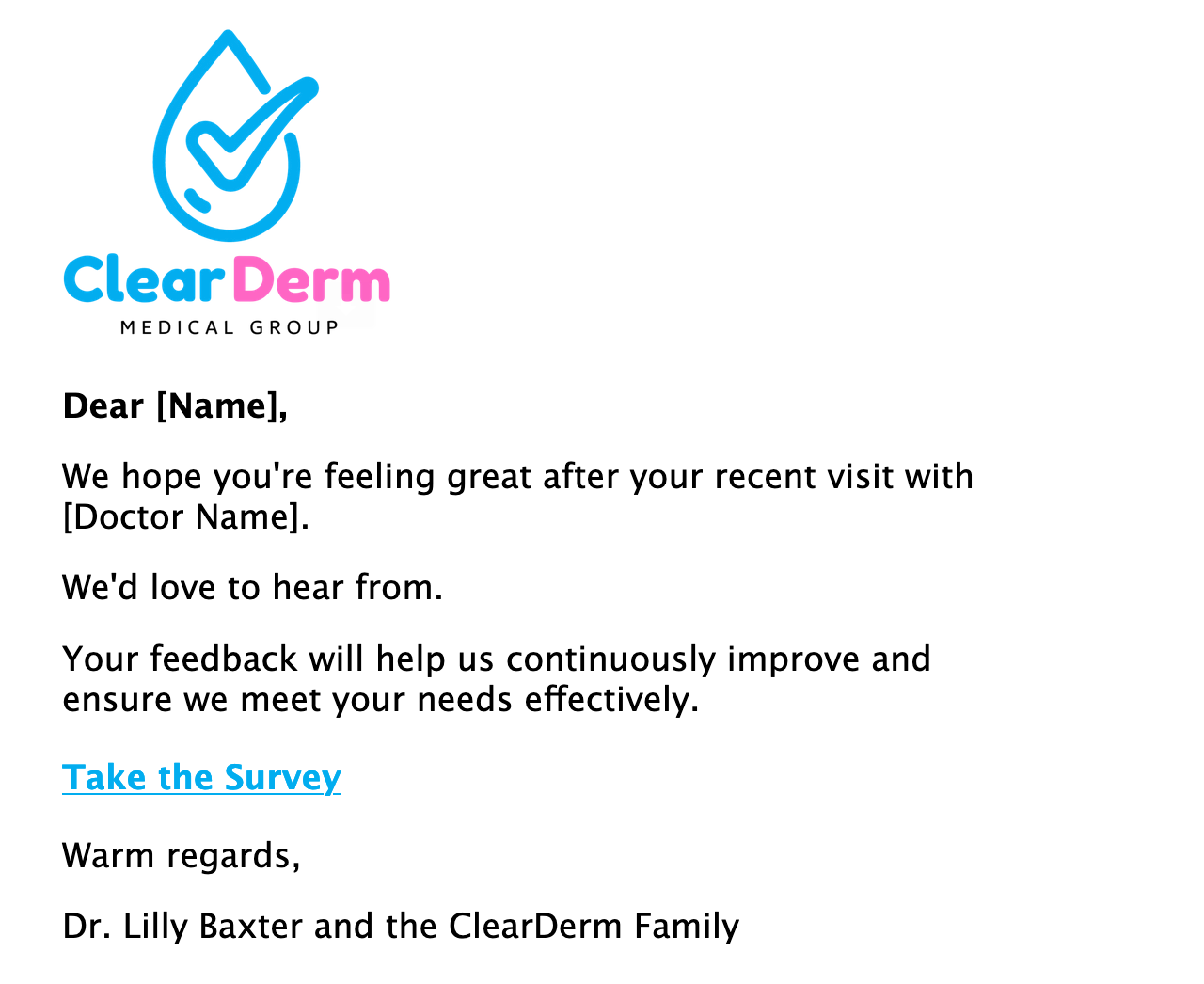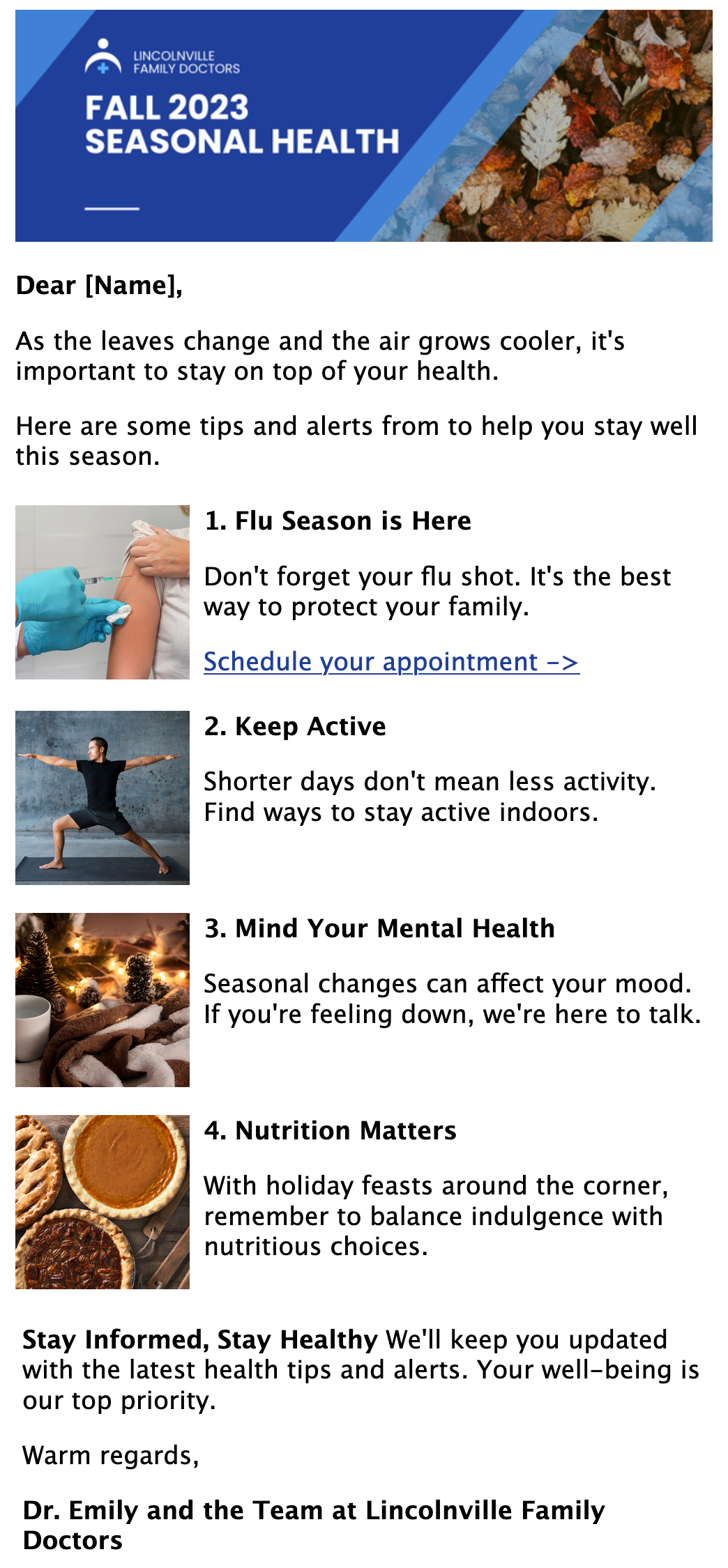
Email marketing remains the most effective channel with the highest engagement and return on investment. It's a truism that email marketing ROI is between $36 to $45 per dollar spent, yet no other marketing channel comes close. The healthcare industry, in particular, sees high view and click rates, which only increase with personalization.
Table of contents:
- Statistics and benchmarks
- HIPAA and email marketing personalization
- Can email marketing include PHI?
- Use cases that contain PHI
- Examples of personalized healthcare emails
- The next step in HIPAA compliant email marketing
Healthcare email marketing statistics and benchmarks
Paubox analyzed over 2 million emails from over 100 healthcare organizations to uncover healthcare email marketing benchmarks.
- According to Campaign Monitor, the healthcare industry benchmark for open rates is 23.7%.
- WebFX states that the average open rate is closer to 19%.
- Paubox discovered that healthcare email open rates can rocket up to 54.76%.
- Drip campaigns outperformed marketing emails regarding click-through rates (CTR) with a CTR of about 5.00%, nearly double the 2.74% CTR for marketing emails.
This high open rate is due to patient trust, content relevance, and personalization.
HIPAA, healthcare email marketing, and personalization
HIPAA allows email marketing, but it must be HIPAA compliant. Email marketing is usually considered HIPAA compliant when patients provide explicit consent, typically through a clear and documented opt-in process.
What is protected health information (PHI)
PHI includes a wide range of patient data, from the patient's name to medical records and treatment history to insurance details and demographic information.
In a nutshell, anything that can help identify an individual is considered PHI.
Can email marketing include PHI?
HIPAA requires safeguarding protected health information (PHI) in all marketing communications. Healthcare organizations must ensure security measures to incorporate PHI into marketing emails, including encryption, access controls, and proper authorization.
Most email marketing platforms don't meet HIPAA standards and won't sign a business associate agreement (BAA). A HIPAA compliant email marketing solution, like Paubox Marketing, will sign a BAA and ensure emails are encrypted during transit, allowing for personalization in healthcare marketing.
Healthcare email marketing use cases that contain PHI
- Newsletters: Send regular newsletters with relevant updates, research, and organizational milestones.
- Health tips and education: Share personalized health advice, lifestyle recommendations, and educational content.
- Preventive care reminders: Encourage patients to schedule regular check-ups, vaccinations, or screenings by sending reminders.
- New service announcements: Introduce new treatments, facilities, or specialists to patients,
- Patient satisfaction surveys: Solicit feedback to improve the patient experience.
- Appointment reminders: Send appointment notifications, confirmations, and rescheduling options.
- Personalized care plans: Provide tailored health recommendations and care plans.
- Seasonal health alerts: Share information about prevalent health concerns during specific seasons, like flu or allergy season.
- Telemedicine promotion: Promote telehealth services.
- Patient re-engagement campaigns: Re-engage inactive patients by sending personalized, HIPAA-compliant messages encouraging them to return to your practice.
Learn more: HIPAA compliant email marketing use cases
Examples of personalized healthcare emails
Mental health newsletter

Why emails like this work: Newsletters don't have to be long, detailed, or jam-packed. Short, direct newsletters are more readable, allowing the recipient to quickly find the most helpful, relevant information.
It has a clear call to action to encourage the recipient to schedule an appointment.
The personalization is simple, a name, which creates a sense that the newsletter's content was curated specially for the reader.
Post-visit survey

Why emails like this work: Addressing the patient by name and referencing their recent visit with a specific doctor creates a sense of personal care and attention. This personalization makes the patient feel valued and more likely to respond.
The straightforward request to 'Take the Survey' is clear and actionable, encouraging immediate response without overwhelming the patient with information.
By stating that the feedback will help improve services, patients feel their opinions are important and can make a real difference, increasing the likelihood of engagement.
Seasonal health alerts

Why emails like this work: Offering season-specific health tips makes the information timely and directly applicable, increasing its value to the recipients.
The email is structured with clear thanks to the imagery, making it easy for readers to absorb and act on the information.
The email encourages patients to stay proactive about their health, reinforcing the clinic's commitment to their well-being.
Take the next step in HIPAA compliant email marketing
The effectiveness of personalized email marketing in healthcare is clear. Its proven ROI and ability to engage patients is an essential tool for any healthcare marketer.
What's next: Leverage the insights and examples from this blog post. Focus on crafting emails that are personalized, HIPAA compliant, and patient-centric.
Go deeper: HIPAA compliant email marketing: What you need to know
Subscribe to Paubox Weekly
Every Friday we'll bring you the most important news from Paubox. Our aim is to make you smarter, faster.

 Dean Levitt
Dean Levitt



